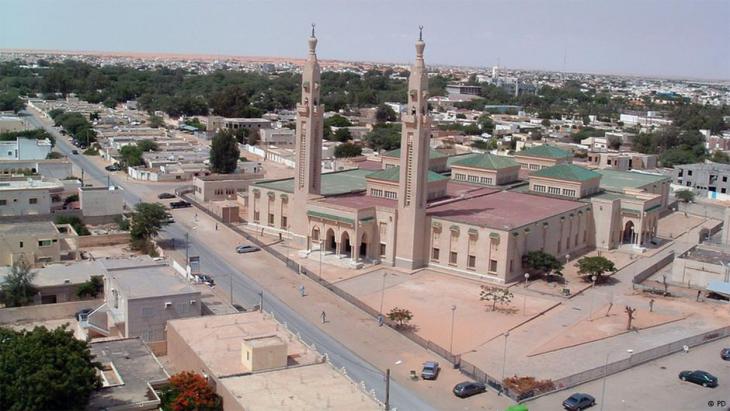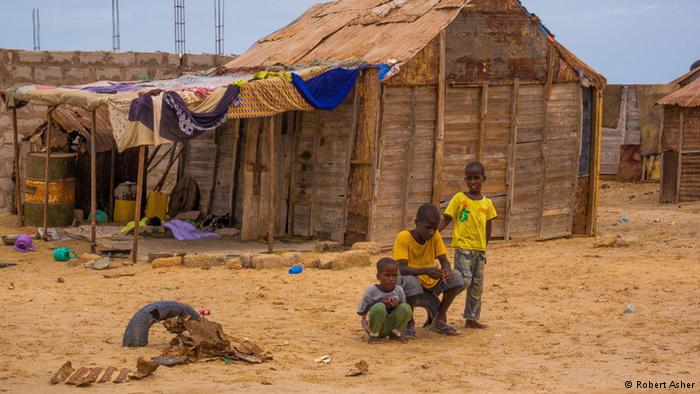Role model for Africa's women

Fatimetou Mint Abdel Malick has a warm, maternal demeanour and a firm handshake. Keen eyes sparkle behind her glasses. A petite woman in a traditional flowing robe and a blue headscarf decorated with pink flowers, she doesn't look like a politician in charge of a 60,000-strong community – at least not to Western eyes.
She is mayor of a district of the Mauritanian capital Nouakchott – and has been for 14 years. That makes her not only a pioneer in her own country, but also a role model for many African women. "I never actually wanted to go into politics," she says with a laugh, "but I have a very social vein and it was a kind of calling. I wanted to change things in my city for the better."
Now 57, she originally studied computer science in Belgium. It was during her time there that her eyes were opened to women's opportunities. Years later, in 2001, she ran for mayor in a district in her home city of Nouakchott – and won at the first attempt. During her first period in office, she was still the only woman mayor in the country. "216 men – and me," she says, her voice betraying well-earned pride.

Opening the door to politics for other women
In Tevragh-Zeina, the district of the capital of Nouakchott for which she is responsible, everyone knows her. She has achieved a great deal there, improving school education – particularly for girls – reforming the administration, reorganising refuse disposal and investing in infrastructure. Fatimetou Mint Abdel Malick wanted to build car parks, playgrounds and football pitches – and she did.
It sounds so easy when she talks about it now, but it certainly wasn't quite that simple: "To begin with, I found the responsibility and the expectations people placed on my shoulders a burden," she says. "After all, I had to be successful so as to open the door for other women and enable them to get into politics."
She has had some success in this respect. There are now three other women mayors in Mauritania. She herself has never felt uncomfortable in her country's male-dominated political arena. "Women have a very good status in our society," she explains, "that made it easier for me."
Development and religion hand in hand
And religion? What role does faith play in her life? Fatimetou Mint Abdel Malick looks rather perplexed, cocking her head in surprise as if she considers the question superfluous. "A very important one," she says after a pause, "I am a Muslim."
Development and religion, she says, are not mutually exclusive but belong together. She rejects the idea that Islam oppresses women and makes it hard for them to have a career of their own. In the Mauritanian religious tradition, she says, Islam virtually demands that women play an active role in society.
A mother of three grown children, Fatimetou Mint Abdel Malick is not only a local politician but also president of the Network for Locally Elected Women of Africa. She is invited to conferences and panel discussions all over the world, flying from one continent to the next. "Being up in the air is perfectly normal for me," she says. Sometimes 24 hours are not enough to get everything done that she wants to do.

Raising awareness of environmental issues in Mauritania
One reason for that lack of time is that she also feels responsible for environmental protection and catastrophe management in her country. Mauritania has to deal with water shortages, sandstorms and desertification.
She organises workshops in schools, for instance, to raise awareness of environmental issues among children and young people. She has launched campaigns for the protection of dunes, planted date palms in the city with women's groups, and called on local people to clean up the country's beaches.
Her calm, relaxed demeanour is certainly part of her recipe for success. Fatimetou Mint Abdel Malick was recently re-elected for her third term in office, and has enough plans and projects in mind for the next 20 years. Mauritania is at No. 158 on the Human Development Index, close to the bottom of the ranking.
This hardworking mayor has a lot of work ahead of her. She currently has more than 3,000 fans on Facebook; in real life, there are no doubt many more than that.
Elisa Rheinheimer
© Deutsche Welle/Qantara.de 2015
Translated from the German by Katy Derbyshire
